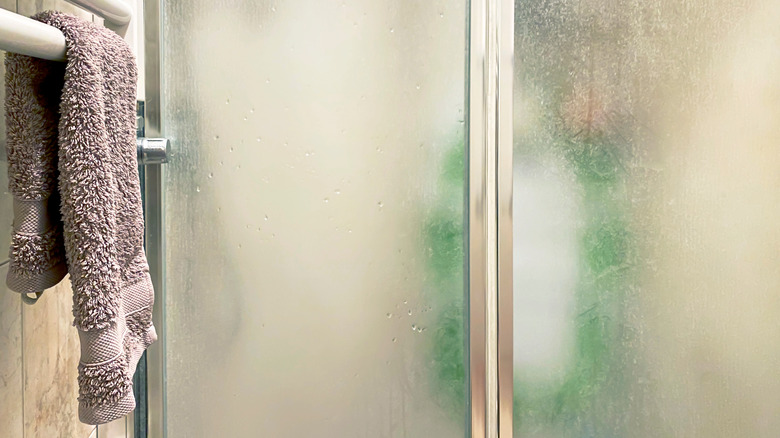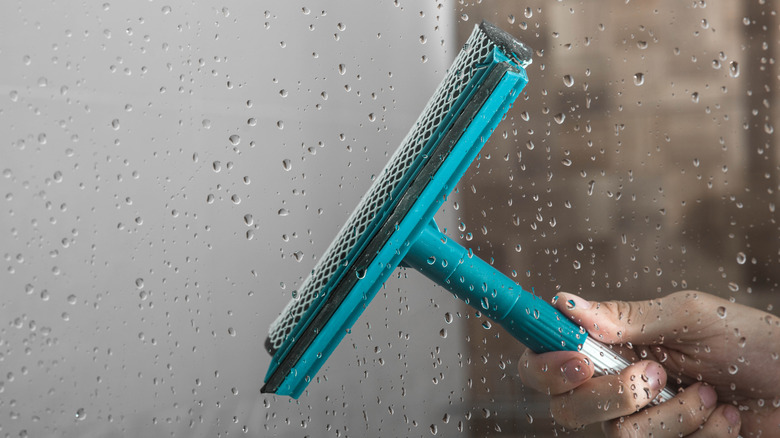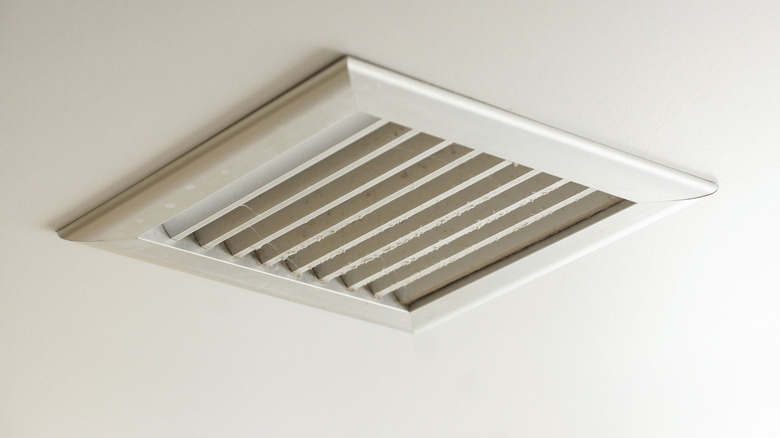Here's Why You Should Be Drying Your Shower After Every Use
Whether you have a stand-alone shower, shower-tub combo, walk-in shower, or anything in between, it's arguably one of the most difficult and unpleasant areas of your home, to clean. Between the physical labor it takes to scrub it top to bottom, the heavy-duty chemicals needed to make it sparkly clean, or how quickly it gets dirty in between uses, it's few people's favorite chore.
However, it's also one of the most important areas to clean. Soap scum builds up incredibly quickly, as does mildew and mold. It doesn't take long for your shower to go from spotless and squeaky clean to looking somewhat grimy, but there are ways to prolong the inevitable cleaning process — primarily by wiping it down after every single shower. Melissa Maker of Clean My Space explains that squeegeeing or wiping down your shower with a cloth after every use can reduce soap scum buildup, and prevent the ideal conditions for mold and mildew growth.
Squeegee to the rescue
This may seem unnecessary, but something as simple as removing the excess water from your shower, including the walls, door, and floor, can drastically reduce the chances of mold growth, which is a much bigger hassle to deal with than getting in the five-minute habit of drying your shower. If your bathroom tends to have a musty smell after showering, it can also reduce that by getting rid of the excess moisture.
Make it simple by keeping a dry squeegee near your shower, and before you even step out, give the interior of your shower a super quick wipe down. There are microfiber squeegees for shower tubs and the interior walls, as well as glass squeegees for glass doors. Another option is to use your body towel or a microfiber cloth to wipe it dry, but depending on the size of your shower, you may go through a couple of towels.
Removing excess moisture
While this simple routine can keep your bathroom cleaner for longer, there are a few extra steps you can take on daily to ensure your bathroom is as clean and aired out as possible. For example, after you've dried off the walls, doors, and floors of your shower, grab a spray bottle and fill it with diluted white vinegar. Spray your shower walls and door with this mixture, which will kill any bacteria and funky smells. Avoid spraying stone, though.
Your shower may not be the only area that collects water, though. The corners of your floors right next to the shower often have small pools of water and moisture that get trapped, which can lead to unpleasant smells and mold. In addition, run your bathroom exhaust fan for roughly 15 minutes or so to help remove some of that moisture, and if you have a bathroom window, crack it open for the same amount of time. If there's still standing water, use a towel to soak it up.


